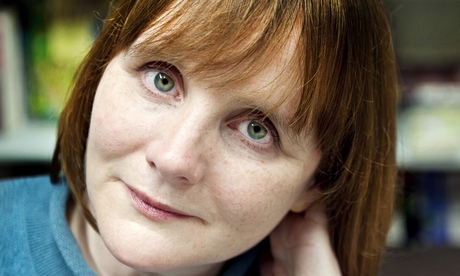
DS Marnie Rome is 28 when her parents are murdered by their 14-year-old foster son, Stephen. Sarah Hilary's superbly disturbing debut opens as Rome arrives at her former home to see it turned into a crime scene, an officer leaving the building bearing the murder weapon: "Mum's bread knife, its steel teeth full of tattered red skin." She is kept outside by her boss, who lowers her, keening, to the pavement.
"She fights him," writes Hilary. "She's not this person. She won't be this person – the one who collapses and weeps at the roadside, who can't take the knock on the door, who falls and never gets back up again. The victim. She won't be the victim."
Five years on, Rome is a successful, trusted DI, her foster brother locked up, her own shadows locked deep inside, when she's landed with a case that will bring her face to face with her "worst fear: the stigma of victimhood". She and her partner, Noah Jake, need to persuade Ayana Mirza to testify against her brothers; Ayana is hiding in a women's refuge in Finchley after escaping their not-so-tender ministrations. Arriving there, Rome and Jake hear a scream and find a man, stabbed, on the floor, a small blond woman standing over him with a knife. As they investigate, they find evidence of domestic abuse on a distressing scale, but the truth, "things you wouldn't want to believe", keeps slipping out of their grasp.
"They're not... your kind of victims. They didn't fight back. They're keeping their heads down, staying in the shadows," Ed Belloc, victim support worker and Rome's closest friend, tells her. Simone, an abused resident of the shelter, isn't so sure. "He thought he'd broken her in a thousand pieces, but sometimes... when you are broken... You mend hard." Everyone has a different story, no one is willing to speak out, everyone has a secret – and then their witnesses go missing and the danger begins to spiral out of control.
What an entry on to the thriller scene Hilary has made with Someone Else's Skin. She writes deftly, unobtrusively, subtly drawing her reader into the cold, wet world of London, where "the sky's empty, grey, as if someone has dragged a tarpaulin across it", where "the rain kept coming, as if someone had unplugged the sky, sheets of the stuff, thick and chilly". And her characters are freshly drawn: Rome's irascible boss, smiling, "looked like someone was mugging the lower half of his face"; Hope Proctor, standing over her bleeding husband, is "tensed with listening, as if her whole body was an ear". Rome, talking to her foster brother in prison, has it that "slowly, very slowly, like a spider coming down from its web, Stephen's eyes found her".
It's the story that really drives this novel, though, and this is a corker: twisty, tricksy and, on occasion, seriously scary. There is a moment when it is almost impossible to keep reading, the scene Hilary has created is so upsetting, but almost impossible not to, the story is so hell-for-leather compelling. This is a rare thing, for any thriller, and extraordinary in a debut, but then this is an extraordinarily good debut, slipping under the skin of the bad things that happen every day and everywhere. "The house was quiet again, and now she remembered how, from the outside, it had looked like every other house in the street." Utterly creepy, without being gratuitous, and an exciting start to what is intended to become a series about Rome.

